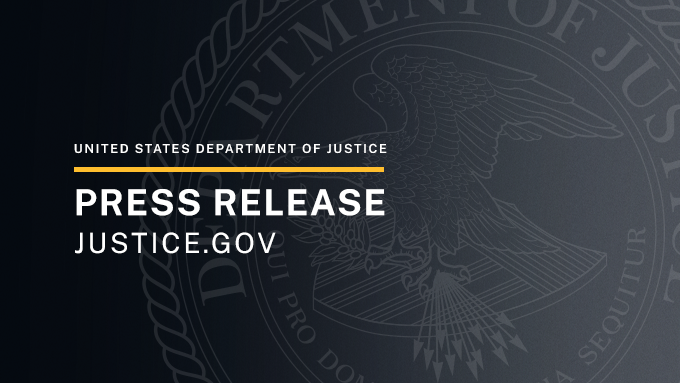Unraveling a Multi-Million Dollar Medicare and Medicaid Kickback Scheme in Tennessee
Overview of the Verdicts
In a staggering case of healthcare fraud, Fadel Alshalabi, Samuel Harris, and Dr. Benjamin Toh have each received significant prison sentences for their involvement in a multi-million dollar Medicare and Medicaid conspiracy. This elaborate scheme involved paying and receiving illegal kickbacks, exploiting federal healthcare programs meant to assist the elderly and vulnerable.
Key Players and Their Sentences
Fadel Alshalabi: The Mastermind Behind the Scheme
Fadel Alshalabi, 57, of Waxhaw, North Carolina, was sentenced to five years in prison. As the CEO of Crestar Labs, LLC, his laboratory operation—which extended across several states—was the central hub for this fraudulent scheme. Alshalabi was found guilty of violating the Anti-Kickback Statute and money laundering.
Samuel Harris: The Marketing Strategist
Samuel Harris, 30, of American Fork, Utah, received a two-and-a-half-year sentence. He was the owner of Flojo Recruiting d/b/a Secure Health, a marketing company that engaged in illegal contracts with Crestar Labs, facilitating the kickback operations.
Dr. Benjamin Toh: The Facade of Legitimacy
Dr. Benjamin Toh, 71, a physician from Chicago, was sentenced to 13 months in prison. Toh’s role involved purported telemedicine consultations for lab tests which were never legitimately conducted, blindly signing orders for patients he never encountered.
The Conspiracy Unveiled
According to evidence presented during the trials, Alshalabi, Harris, and several co-conspirators engaged in sham contracts and paid unlawful kickbacks to facilitate genetic testing. These tests were primarily conducted on elderly and low-income patients, which raises serious ethical concerns regarding exploitation.
Targeting Vulnerable Populations
The marketing strategies employed were cunningly deceptive. Targeting senior health fairs and going door-to-door in low-income neighborhoods allowed these conspirators easy access to federal health care beneficiaries.
By preying on the desperate need for medical services, they obtained genetic material from patients, which was later used to bill Medicare and Medicaid.
Glaring Financial Impact of the Fraud
Massive Financial Gains
The scale of the fraud was shocking. Alshalabi and his co-conspirators billed over $129 million for laboratory tests, reaping over $35 million in profit. Claims submitted to Medicare and Medicaid based on problematic procedures amounted to millions:
- Over $6 million from samples obtained by Harris
- More than $9 million from orders signed by Dr. Toh
Alshalabi was ultimately found to have paid over $12 million in illegal kickbacks.
Consequences of the Fraudulent Activities
Patients testified during the trials that many did not receive test results at all. Those who received results often found them incomprehensible, highlighting the systematic failings in patient care due to the rampant greed driving this conspiracy.
Voices of Accountability
Robert E. McGuire, Acting United States Attorney for the Middle District of Tennessee, emphasized the seriousness of this case:
"Those involved in health care schemes, motivated by greed and designed to bilk the American taxpayers, should face substantial sentences in prison."
Similarly, Kelly Blackmon, Special Agent in Charge of the U.S. Department of Health and Human Services, reinforced the dangers of kickbacks in medical services:
"These sentencings demonstrate the commitment of HHS-OIG and our law enforcement partners to hold those who exploit these programs accountable."
The Ripple Effect: Wider Implications of Health Care Fraud
The fallout from such fraudulent activities affects not just individual victims but plays a significant role in diminishing the integrity of healthcare systems. Joseph E. Carrico, FBI Nashville Field Office Special Agent in Charge, noted:
"Health care fraud impacts individuals, businesses, and the overall healthcare system."
Upcoming Sentences and Broader Context
Additionally, six co-defendants involved in this scheme plead guilty and are awaiting sentencing. This includes figures associated with Crestar Labs and other marketing companies, all of whom face substantial prison time for their roles.
As investigations continue, the public must remain vigilant against fraudulent practices that threaten the integrity of the healthcare system designed for the most vulnerable. For more information on healthcare fraud and its implications, check the U.S. Department of Health & Human Services and the FBI’s Health Care Fraud page.
Through strict enforcement and heightened public awareness, we can work to ensure that such betrayals of trust are met with accountability.
In Summary
The sentences imposed on Alshalabi, Harris, and Toh serve as a stark reminder of the consequences of unethical practices in the healthcare industry. Healthcare fraud not only depletes valuable resources but also undermines the trust essential for effective patient care. Let this case be a lesson and a call to action to protect the integrity of health systems everywhere.






